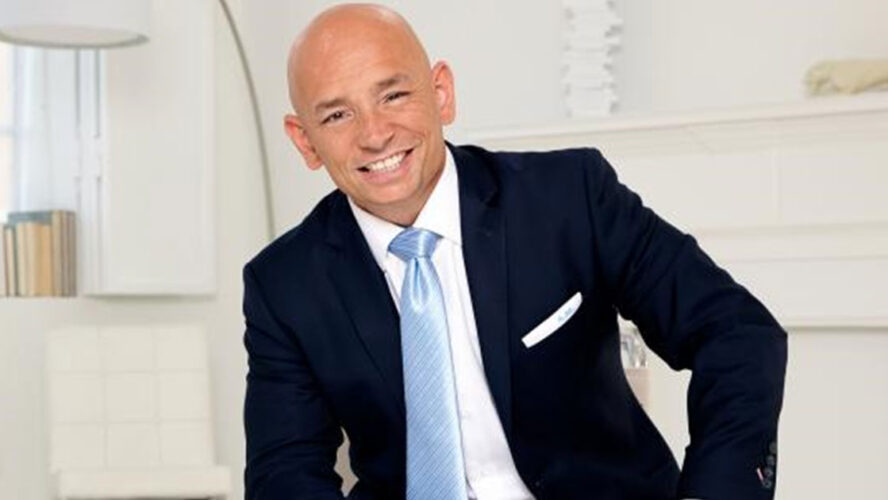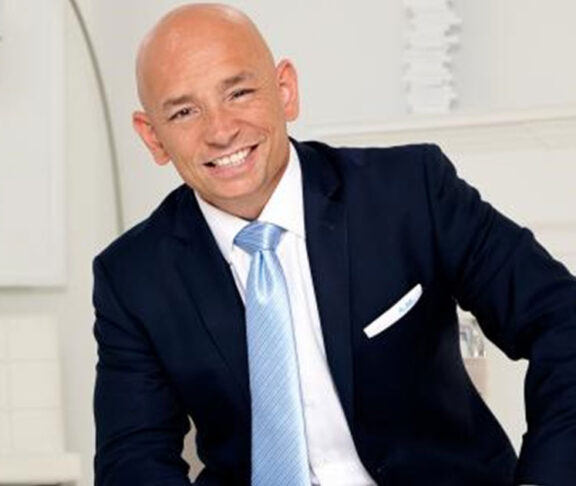Hotel Expert and TV Host Anthony Melchiorri shares practical strategies, tech insights, and operational tips to elevate rental experiences and maximize long-term profitability.
With your extensive background in hospitality and property management, what are the key principles landlords and property managers can take from the hotel industry to create better rental experiences?
Surprise and delight are powerful. People love discovering something new and “Instagram-worthy.” However, surprises should never come at the expense of comfort. The basics matter most: a comfortable bed, working plumbing, hot water, easy-to-use fixtures, and a spotless environment. I’ve always said, “old and clean is better than new and dirty.” Standardization of core comforts is essential, whether you’re running a one-star rental or a five-star property. Once safety, security, and basic needs are consistently met, then it’s okay to get creative and add personality.
It’s also important to remember that amenities mean nothing if the fundamentals don’t work. A rooftop pool or pickleball court doesn’t make up for broken plumbing. Successful landlords know their buildings inside and out; they can spot maintenance issues, anticipate costs, and solve problems quickly. At the end of the day, strong operations and reliability are what create trust and satisfaction.
What do you see as the biggest challenges facing rental property owners today, whether they manage long-term or short-term rentals?
Regulations are the biggest challenge. In some cities, restrictions heavily favor landlords; in others, like New York, they overwhelmingly favor tenants. While tenant protections are important, certain policies allow abuse — for example, tenants staying months without paying rent while owners still face rising taxes, interest rates, and operating costs. That can put even established owners at risk of losing buildings.
At the same time, zoning restrictions often prevent the development of much-needed housing. Outdated laws block opportunities to convert underused spaces into rentals. Thankfully, we’re starting to see change in places like Manhattan, where some hotels and office buildings are being rezoned for housing post-COVID. That type of flexibility is essential for balancing supply, demand, and affordability.
Many landlords want to scale their businesses but struggle with operations and guest experience. What are some best practices to improve efficiency and maximize profitability?
There’s no shortcut; it comes down to fundamentals. First, know your local laws before you ever invest. Second, hire a great lawyer. Third, understand operations. Running rentals is no different from running a hotel, a restaurant, or even a candy store. Success comes from sound business practices, not quick wins.

Too often, people chase fast profits without understanding the business. COVID exposed that. Many investors who thought real estate was “easy money” lost everything. Smart operators, on the other hand, prepare for challenges, understand cash flow, and know it may take years to turn a profit.
Like in school, if your study habits aren’t working, you adjust. In business, you need the same mindset. Problems will come — some tenants will take advantage, systems will fail — but you must have backup plans in place. Anticipation, preparation, and adaptability are what separate professionals from amateurs.
The short-term rental market has exploded in recent years. What strategies should property owners use to balance guest turnover while maintaining high-quality experiences?
Personalization is everything. Small gestures — like remembering a guest or tenant’s birthday or acknowledging a special occasion — can create loyalty that lasts far beyond the stay itself.
Word-of-mouth remains the most powerful marketing tool. Even if guests don’t return, a great experience means they’ll recommend your property to friends and family. Social media amplifies that effect. Every rental should aim to create “shareable moments,” whether through thoughtful design, standout service, or memorable details. If you’re not leveraging Instagram, TikTok, or YouTube, you’re missing opportunities to connect with future guests. Digital storytelling isn’t optional anymore; it’s essential.
Technology is transforming property management, from smart locks to automated bookings. What tech tools or innovations do you see as game changers for rental owners?
Smart locks and revenue management systems are already game changers, but the next big leap is in AI-powered analysis. Owners can now track guest behavior — how long people spend on their website, which photos they view, how quickly they book — and use that data to improve marketing, pricing, and operations.
AI also makes it easier to review feedback, spot patterns, and even streamline marketing materials. I recently used AI to draft a treatment for a new show. The creativity was mine, but AI provided the structure in minutes instead of weeks. That’s how property owners should view technology: as a tool that enhances efficiency, not a replacement for human insight. It’s like using a hammer instead of your hand.
You’ve built a reputation for turning struggling properties around. What’s one piece of advice you’d give to a property owner who is looking to revamp and optimize their rental business?
Care about your employees and your guests more than your bottom line. If you do that, the bottom line will take care of itself. Growth comes from fundamentals: move slow to move fast, pay attention to details, and don’t cut corners.
Today, people are tired of bad service and indifference. When you deliver a truly positive experience, guests will talk about it and recommend you. Know your building inside and out, invest in your people, and embrace social media. If you’re not using digital tools to connect with your audience, you’re already behind.

